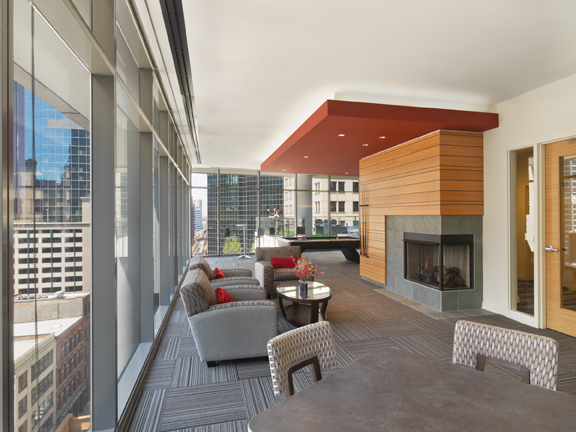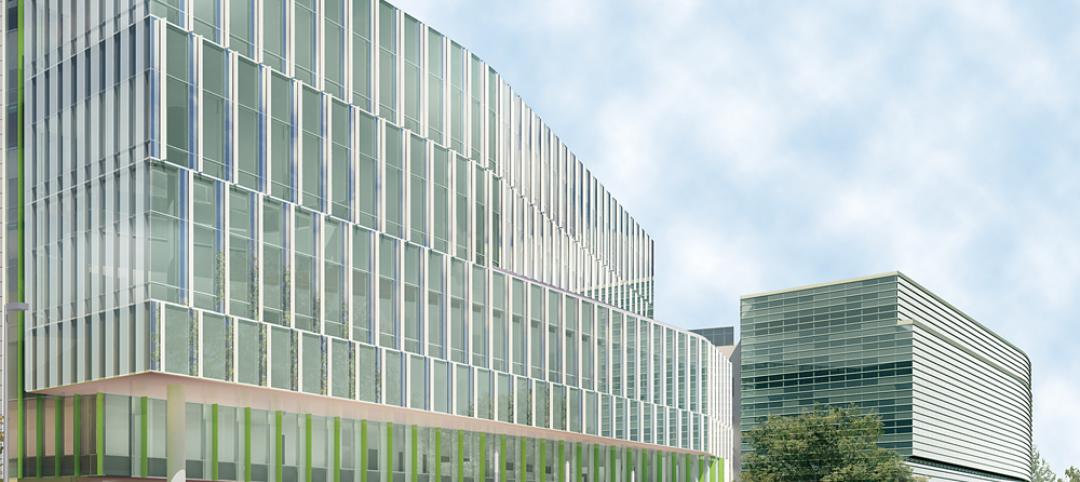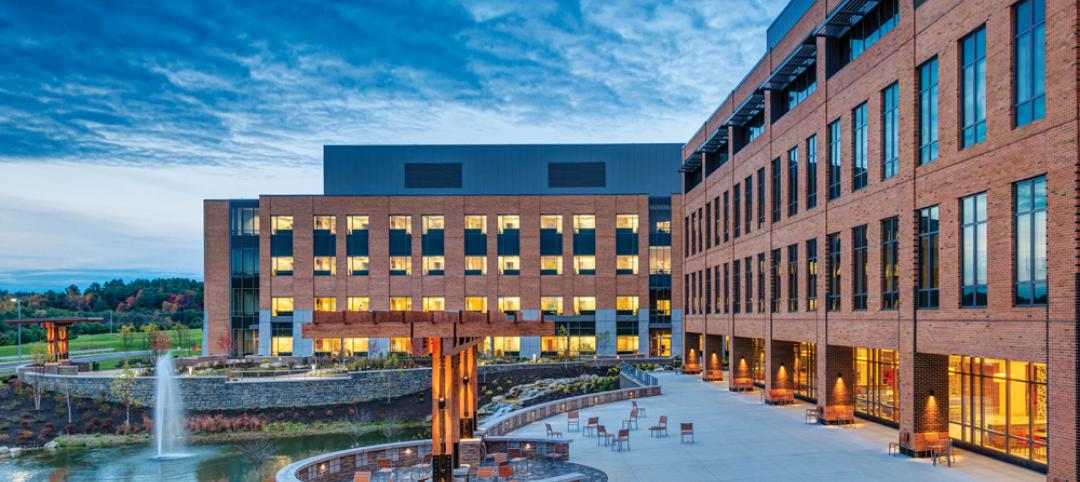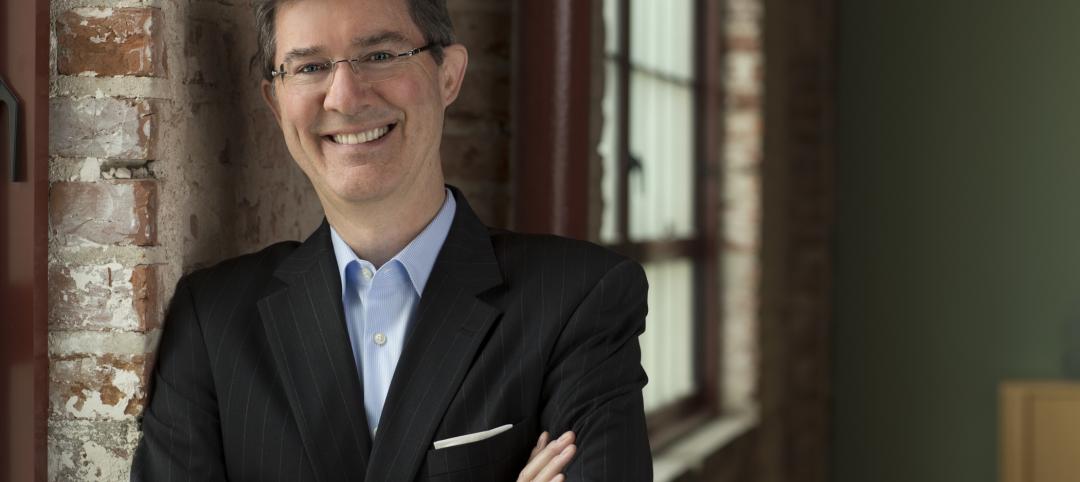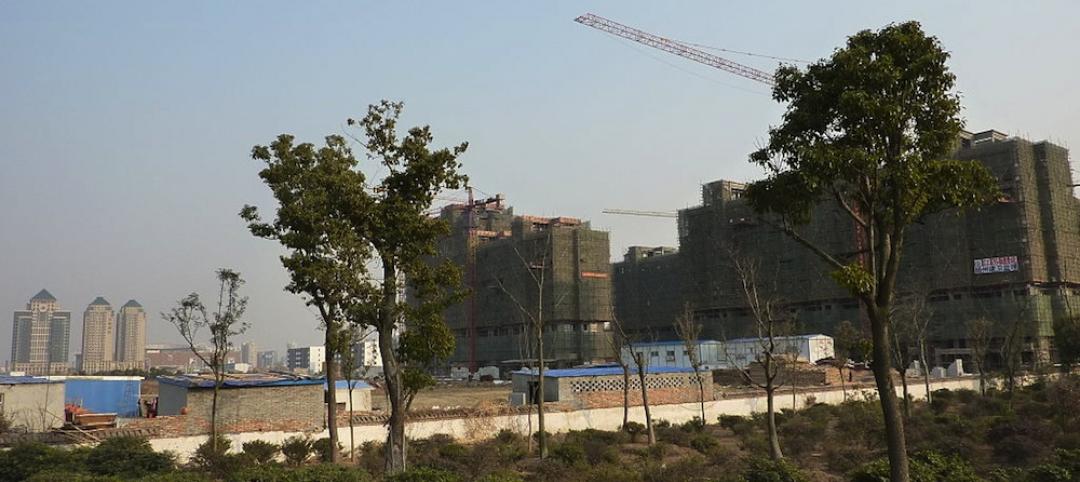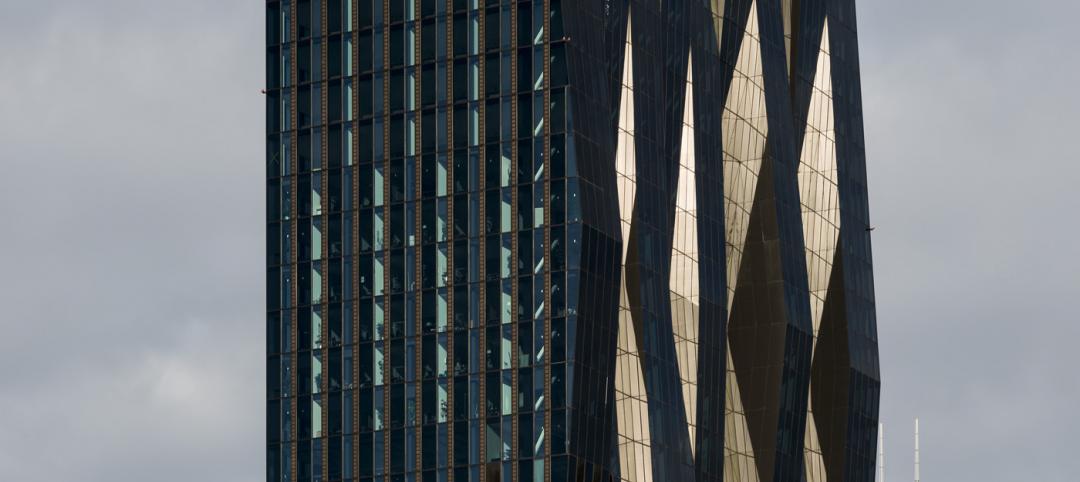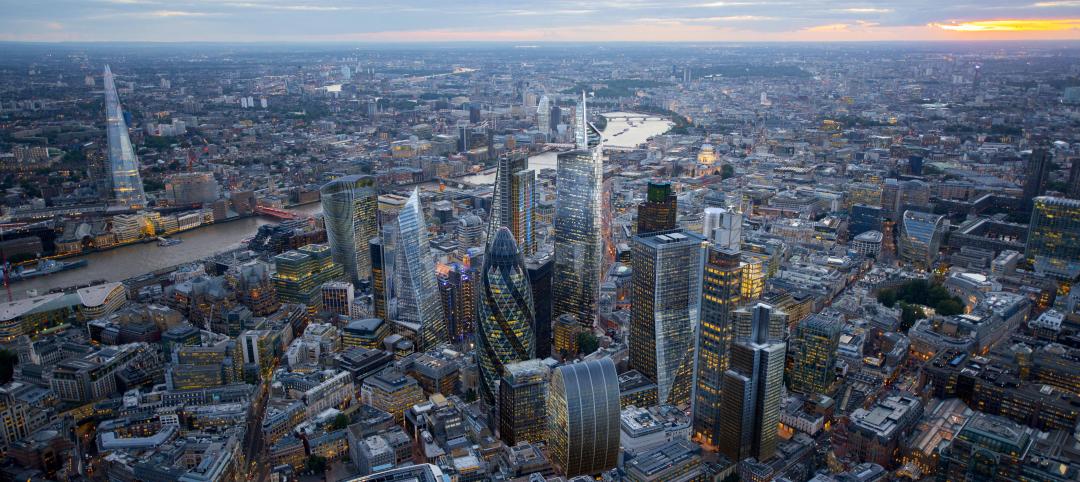Except for a few pockets of ultra-luxury condo action—New York, San Francisco, and parts of Florida, Hawaii, and metro Washington, D.C.—today’s multifamily story is all about rentals. “The apartment sector has been a darling for investors over the past two years,” notes the Urban Land Institute in its recent Real Estate Consensus Forecast. Vacancy rates are at an enticing 5.0%, and rental rates should be up 5.0% this year, although ULI does forecast some slippage next year, to 4.0%.
“Investors continue to view apartments as a preferred asset class in today’s environment,” says Dale Connor, Lend Lease’s Managing Director, Project Management & Construction, Americas. He sees developers playing catch-up to meet the growing demand for apartments, especially in the top five rental markets: New York City, Washington, D.C., Boston, Chicago, and Los Angeles.
SCROLL DOWN FOR GIANTS 300 MULTIFAMILY FIRM RANKINGS
Savvy market-rate developers are looking for locations around universities, innovation incubators, and teaching hospitals, says Ray Kimsey, AIA, LEED AP, President of Atlanta-based Niles Bolton Associates. Land that was once set aside for retail or office development is being looked at for multifamily, especially if served by urban transit.
“If you look at the hottest neighborhoods around Washington, D.C., Pittsburgh, or Baltimore, they all have an influx of Gen-Y people graduating and wanting to stay in that environment,” he says. Kimsey says there’s even a movement toward walk-up, garden-style apartments in some suburbs and second- and third-tier cities.
The use of urban infill sites is adding to the popularity of podium-style multifamily construction, says Mathew Dougherty, PE, Vice President with McShane Construction, Rosemont, Ill. “The podium ‘stacks’ uses vertically within the existing floor plate, thereby allowing a mixed format of ground-floor retail, parking floors, and residential floor plates,” he says.
According to John Lahey, AIA, Managing Principal at Chicago-based Solomon Cordwell Buenz Associates, the rental market is being shaped by two factors: service and community.
“Service” refers to the heightened demand for amenities: party rooms, surround-sound movie theaters, fully equipped fitness centers, mega-size video screens in common areas, computer golf games that let you play any course in the world, I-GO car rentals—even “restaurant days,” where a local restaurant comes in and sells takeout dinners one night a week.
There are even amenities for canine occupants. “People love their dogs,” says Lahey, so dog walks, dog parks, dog washing bays, and dog walking and grooming services are becoming de rigueur in many large (>400 units) complexes. “People want their lives to be easier,” he says. “They want to be taken care of.”
Tenants are demanding more green amenities, says Kimsey. “Expectations about energy conservation and sustainable features are now viewed as a basic right by many tenants,” he says. “If they lived in a LEED-certified residence hall in college they want a LEED apartment”—but not if it costs more than market rate.
“Community” refers to the renter’s need for connection, says Lahey. In past decades, apartment dwellers put a premium on privacy. Less so today. “A lot of people who move back into the city, they’re not confirmed urban dwellers, and they want to meet people,” he says. “The Starbucks in your building becomes the meeting place to get integrated into the larger community.” McShane’s Dougherty says wifi connectivity has become a given in new and renovated rental projects.
“The design must be hot,” says Kimsey. The units themselves may be “smaller, tighter,” but that means they must be more elegant and efficient, with open layouts and near-condo-like finishes. McShane’s Dougherty says granite countertops, stainless steel appliances, upgraded bathrooms, and high-quality flooring are expected, even in suburban garden apartments. Developers are increasingly concerned about sound attenuation, he says, so insulation choices, assembly details, and materials selection are crucial.
Looking ahead, SCB’s Lahey says that, unlike the condo market, apartment development needs to be left to the pros—firms like AMLI, Avalon Bay, Equity Residential, Forest City, The Habitat Company. “They have the track record, and they really do know what they’re doing,” he says.
“The money is out there,” says Kimsey, but it’s split between smaller projects being funded by S&Ls and smaller banks, and big projects attracting institutional and private-equity investors. Holding back the pent-up demand: anemic job creation, which limits new household formation.
Even with low mortgage rates, many potential buyers have become skittish about purchasing a home, says Lend Lease’s Connor. SCB’s Lahey cites mobility as another factor in rental’s favor, especially with the younger generation.
“People will like living closer in, and units will get bigger, something decent in size, and they’ll be willing to pay for it,” he says. “They’ll see a home as a place in which to live, not necessarily as an investment.” +
TOP 25 MULTIFAMILY SECTOR ARCHITECTURE FIRMS
| Rank | Company | 2011 Multifamily Sector Revenue ($) |
| 1 | IBI Group | 38,489,114 |
| 2 | Niles Bolton Associates | 13,772,650 |
| 3 | Solomon Cordwell Buenz | 12,000,000 |
| 4 | RTKL Associates | 11,397,556 |
| 5 | WDG Architecture | 9,817,297 |
| 6 | Perkins Eastman | 9,100,000 |
| 7 | HOK | 8,715,422 |
| 8 | Perkins+Will | 7,193,120 |
| 9 | ZGF Architects | 6,225,112 |
| 10 | Cooper Carry | 5,708,482 |
| 11 | Kohn Pedersen Fox Associates | 5,280,000 |
| 12 | Ziegler Cooper Architects | 4,853,598 |
| 13 | Harley Ellis Devereaux | 4,800,000 |
| 14 | PGAL | 4,607,900 |
| 15 | OZ Architecture | 4,104,475 |
| 16 | GBBN Architects | 3,700,000 |
| 17 | Smallwood, Reynolds, Stewart, Stewart & Associates | 3,605,928 |
| 18 | VOA Associates | 3,367,000 |
| 19 | Carrier Johnson + CULTURE | 3,324,072 |
| 20 | Skidmore, Owings & Merrill | 3,074,000 |
| 21 | Gensler | 2,800,000 |
| 22 | Rule Joy Trammell + Rubio | 2,600,000 |
| 23 | FXFOWLE Architects | 2,399,900 |
| 24 | HKS | 2,398,926 |
| 25 | Mithun | 1,906,000 |
TOP 25 MULTIFAMILY SECTOR ENGINEERING FIRMS
| Rank | Company | 2011 Multifamily Sector Revenue ($) |
| 1 | STV | 119,671,000 |
| 2 | AECOM Technology Corp. | 36,000,000 |
| 3 | Parsons Brinckerhoff | 32,800,000 |
| 4 | URS Corp. | 28,500,000 |
| 5 | Michael Baker Jr., Inc. | 23,620,000 |
| 6 | WSP USA | 17,200,000 |
| 7 | Jacobs | 16,000,000 |
| 8 | Atkins North America | 15,368,901 |
| 9 | Wiss, Janney, Elstner Associates | 14,372,000 |
| 10 | KPFF Consulting Engineers | 12,000,000 |
| 11 | Simpson Gumpertz & Heger | 9,740,000 |
| 12 | Thornton Tomasetti | 7,610,000 |
| 13 | Stantec | 6,345,000 |
| 14 | Clark Nexsen | 5,308,534 |
| 15 | Arup | 4,600,161 |
| 16 | Coffman Engineers | 4,000,000 |
| 17 | Magnusson Klemencic Associates | 3,556,559 |
| 18 | Rolf Jensen & Associates | 2,600,000 |
| 19 | Aon Fire Protection Engineering | 2,250,000 |
| 20 | Smith Seckman Reid | 2,227,000 |
| 21 | Paulus, Sokolowski and Sartor | 1,800,000 |
| 22 | Science Applications International Corp. | 1,530,000 |
| 23 | Lilker Associates Consulting Engineers | 1,500,000 |
| 24 | French & Parrello Associates | 1,396,720 |
| 25 | AKF Group | 1,300,000 |
TOP 25 MULTIFAMILY SECTOR CONSTRUCTION FIRMS
| Rank | Company | 2011 Multifamily Sector Revenue ($) |
| 1 | Lend Lease | 734,160,150 |
| 2 | Clark Group | 612,803,196 |
| 3 | Balfour Beatty US | 441,602,518 |
| 4 | Walsh Group, The | 342,877,063 |
| 5 | Whiting-Turner Contracting Co., The | 283,477,065 |
| 6 | Turner Corp., The | 223,410,000 |
| 7 | Swinerton | 186,340,000 |
| 8 | Harkins Builders | 180,000,000 |
| 9 | McShane Co., The | 175,000,000 |
| 10 | Yates Co., The | 173,900,000 |
| 11 | PCL Construction Enterprises | 159,105,415 |
| 12 | Bernards | 144,000,000 |
| 13 | Paric Corp. | 138,000,000 |
| 14 | Hensel Phelps Construction Co. | 137,700,000 |
| 15 | Weis Builders | 131,960,000 |
| 16 | CORE Construction | 125,513,227 |
| 17 | Suffolk Construction | 111,885,268 |
| 18 | Power Construction | 106,000,000 |
| 19 | Weitz Company., The | 82,000,000 |
| 20 | Austin Industries | 77,074,905 |
| 21 | Brasfield & Gorrie | 67,682,938 |
| 22 | Absher Construction | 61,807,647 |
| 23 | James McHugh Construction | 54,624,665 |
| 24 | Bette Co., The | 54,000,000 |
| 25 | Choate Construction Co. | 51,875,781 |
Related Stories
| Mar 19, 2014
Is it time to start selecting your own clients?
Will 2014 be the year that design firms start selecting the clients they want rather than getting in line with competitors to respond to RFPs? That’s the question posed by a recent thought-provoking article.
| Mar 19, 2014
How to develop a healthcare capital project using a 'true north charter'
Because healthcare projects take years to implement, developing a true north charter is essential for keeping the entire team on track and moving in the right direction.
| Mar 18, 2014
6 keys to better healthcare design
Healthcare facility planning and design experts cite six factors that Building Teams need to keep in mind on their next healthcare project.
| Mar 18, 2014
How your AEC firm can win more healthcare projects
Cutthroat competition and the vagaries of the Affordable Healthcare Act are making capital planning a more daunting task than ever. Our experts provide inside advice on how AEC firms can secure more work from hospital systems.
| Mar 18, 2014
Charles Dalluge joins DLR Group as president, COO
CEO Griff Davenport announces addition of Dalluge to executive leadership team
| Mar 17, 2014
Rem Koolhaas explains China's plans for its 'ghost cities'
China's goal, according to Koolhaas, is to de-incentivize migration into already overcrowded cities.
| Mar 13, 2014
Do you really 'always turn right'?
The first visitor center we designed was the Ernest F. Coe Visitor Center for the Everglades National Park in 1993. I remember it well for a variety of reasons, not the least of which was the ongoing dialogue we had with our retail consultant. He insisted that the gift shop be located on the right as one exited the visitor center because people “always turn right.”
| Mar 13, 2014
Austria's tallest tower shimmers with striking 'folded façade' [slideshow]
The 58-story DC Tower 1 is the first of two high-rises designed by Dominique Perrault Architecture for Vienna's skyline.
| Mar 13, 2014
Simon Perkowitz to join KTGY Group
Perkowitz, the founder of Perkowitz + Ruth, will assist KTGY in responding to the demands and further development of its growing retail/commercial division.
| Mar 12, 2014
London grows up: 236 tall buildings to be added to skyline in coming decade, says think tank
The vast majority of high-rise projects in the works are residential towers, which could help tackle the city's housing crisis, according to a new report by New London Architecture.


